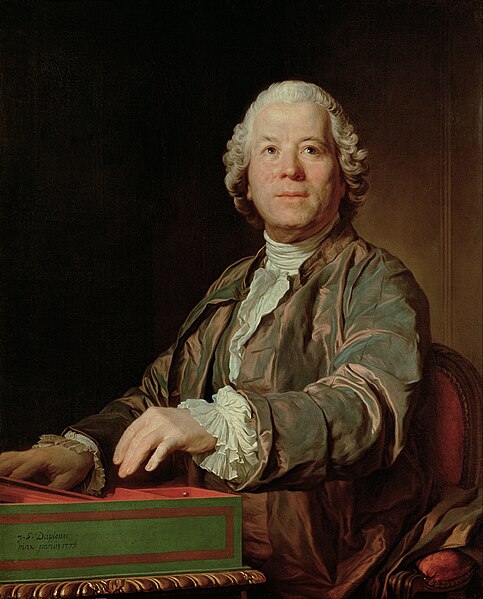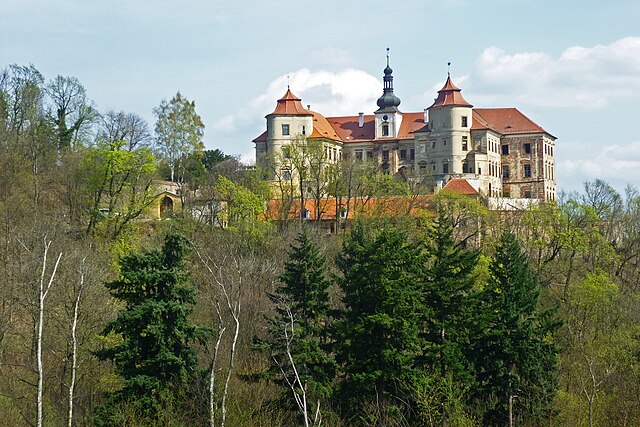Italian opera is both the art of opera in Italy and opera in the Italian language. Opera was in Italy around the year 1600 and Italian opera has continued to play a dominant role in the history of the form until the present day. Many famous operas in Italian were written by foreign composers, including Handel, Gluck and Mozart. Works by native Italian composers of the 19th and early 20th centuries, such as Rossini, Bellini, Donizetti, Verdi and Puccini, are amongst the most famous operas ever written and today are performed in opera houses across the world.
Interior of La Fenice opera house in Venice in 1837. Venice was, along with Florence and Rome, one of the cradles of Italian opera.
Jacopo Peri as Arion in La pellegrina
Claudio Monteverdi by Bernardo Strozzi, c. 1630
Władysław's Opera Hall Building (right) at the Royal Castle in Warsaw
Christoph Willibald Gluck
Christoph Willibald Gluck was a composer of Italian and French opera in the early classical period. Born in the Upper Palatinate and raised in Bohemia, both part of the Holy Roman Empire, he gained prominence at the Habsburg court at Vienna. There he brought about the practical reform of opera's dramaturgical practices for which many intellectuals had been campaigning. With a series of radical new works in the 1760s, among them Orfeo ed Euridice and Alceste, he broke the stranglehold that Metastasian opera seria had enjoyed for much of the century. Gluck introduced more drama by using orchestral recitative and cutting the usually long da capo aria. His later operas have half the length of a typical baroque opera.
Gluck playing his clavichord (1775), portrait by Joseph Duplessis
Statue of Gluck in Weidenwang
House in Erasbach, constructed in 1713 by Gluck's father, where many believe the composer was born.
Jezeří Castle








